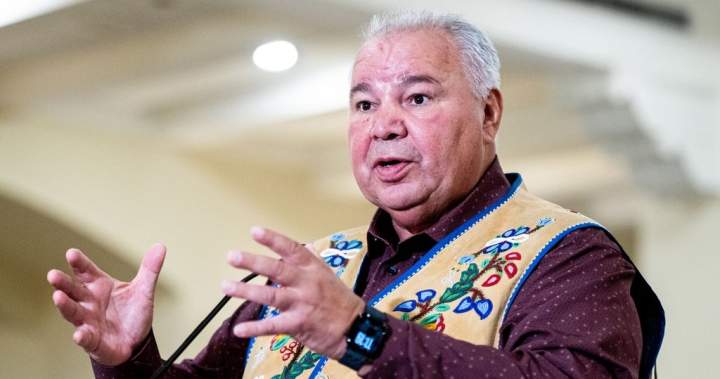Uncategorized
Ontario city facing full $18.3M cyberattack bill after insurer denies claim

Hamilton taxpayers are looking at fronting the full cost of a devastating 2024 cyberattack after the city’s insurance company denied its claim.
Councillors were told at the general issues committee meeting on Wednesday that the city’s claim was denied because multi-factor authentication had not been fully implemented at the time of the attack.
According to the city’s insurance policy, no coverage was available for any losses where the absence of multi-factor authentication was the root cause of the cyber breach.
“I understand why Hamiltonians are frustrated — this was a serious and costly breach,” Mayor Andrea Horwath said in a news release Wednesday.
“We expect our public systems to be strong, secure, and dependable. This incident highlights that the city fell short of that standard — and we’re not okay with that.”
Attackers demanded $18.5M in ransom
On Feb. 25, 2024, Hamilton experienced a cyberattack that disabled roughly 80 per cent of its network and impacted services like business licence processing, property tax, transit planning and finance and procurement systems for weeks.
A few systems were unrecoverable, the city said, including permit applications and licensing, fire department records management and traffic signal system management.

The attackers launched a complex ransomware attack through an external internet-facing server, the city said. After covertly studying the city’s systems, they encrypted systems and data to render them unusable and attempted — but failed — to destroy all the city’s backups.
The attackers demanded a ransom of roughly $18.5 million in exchange for a decryption tool to unscramble the city’s data. The city did not pay the ransom, adding it contained the incident within two days and managed to provide critical services throughout.

Get breaking National news
For news impacting Canada and around the world, sign up for breaking news alerts delivered directly to you when they happen.
“Paying the ransom would have increased the City’s risk and financial exposure,” the city said in the news release, saying technical advisers added decryption tools from cybercriminals are very often unreliable.
“Even with a working tool, safe restoration would have taken significant time and money. Additionally, paying ransom funds could fuel future cybercrime and support international organized crime and terrorist organizations.”
City has spent $18.3M in upgrades so far
Mike Zegarac, general manager of finance and corporate services, told councillors on Wednesday the city would have to incur costs regardless of whether it had paid the ransom.
To date, the city has spent $18.3 million on immediate response, system recovery and third-party expert support. There may be additional invoices still to be received for some items that will be included in future reports, staff noted.
Of the $18.3 million, $14 million has been spent on external experts who have helped the city’s response, redesign and future strategies, staff added.

At the general issues committee meeting Wednesday, Ward 2 Coun. Cameron Kroetsch took issue with the “looseness” of Hamilton’s cyber strategy.
“There weren’t protocols in place for many parts of the city, including how we connected to devices … and there was virtually no training provided whatsoever to councillors with respect to what to do here,” he said.
“This didn’t happen due to councillors’ negligence of any kind, or councils for that matter. But there have been several reports I’ve monitored outside of being an elected official where I saw recommendations being made to address this, and the investments not being made to pick up with those for whatever reason … we knew we had these problems with place … this has to be taken more seriously.”
Ward 9 Coun. Brad Clark said he found it “very frustrating” that multi-factor authentication wasn’t put in place years ago after learning from a staff member at the meeting that Hamilton’s insurance company sought it in late 2022.
When its claim was denied, the city obtained a third-party review of the decision and did not pursue further legal action as it learned the insurer’s action was based on coverage terms.
“The city had full knowledge we were not compliant with the exclusion in 2023,” he said.
“How does council find out it wasn’t done if staff doesn’t share it with us? I find it immensely frustrating there has been zero accountability on this; this chamber, we’ll be held accountable in a year and a bit; front bench and all the staff, no accountability for this incident. I can’t explain that to my residents.”
The city has since said it has enhanced its cyber controls and renewed its insurance coverage.
In her statement, Horwath said Hamilton will learn from the incident.
“We acted swiftly, and we’re moving forward with focus and determination. This is also a clear and indisputable reminder that timely investments in public infrastructure help prevent far more costly reactive responses down the line,” she said.
“The City of Hamilton is rebuilding with resilience and future-proofing in mind, while strengthening our systems, improving protections, and ensuring better service and safeguards for our entire community.”
© 2025 Global News, a division of Corus Entertainment Inc.
Uncategorized
Indigenous groups question government funding for Métis Nation of Ontario

First Nations in Ontario and the Manitoba Métis Federation say nearly $1 billion in federal funding went to a group they allege is fraudulently claiming Métis identity.
The Chiefs of Ontario, which represents 133 First Nations in the province, shared with The Canadian Press data on more than 20 years worth of federal funding provided to the Métis Nation of Ontario.
It suggests that $819,836,061 went from Ottawa to the MNO — an organization First Nations leaders say has no legitimacy and threatens their rights.
“This data shows just how badly First Nations in Ontario are being harmed by the diversion of government funding to the MNO and away from the needs of First Nations and other legitimate groups,” the Chiefs of Ontario said in a media statement.
“The question is, why is the Crown sending hundreds of millions of dollars to the MNO when there is overwhelming evidence contradicting their claims?”
The data indicates the money came from several federal departments, including Indigenous Services Canada, Crown-Indigenous Relations, Parks Canada and Environment and Climate Change Canada.
The MNO also received funds from the Canadian Nuclear Safety Commission and the Impact Assessment Agency related to the potential impacts of projects in their communities.
The conflict between First Nations, some Métis groups and the MNO stems from a 2017 decision by the government of Ontario to recognize six “new, historic” Métis communities in the province — and a 2023 federal government bill, which never passed, that would have affirmed the MNO’s right to self-government.
First Nations and other Métis groups say the communities represented by the MNO have no claim to Métis heritage and Ottawa and Ontario have no right to recognize them.

Last month, history professor Leila Inksetter of the University of Quebec in Montreal released a report drafted on behalf of the Wabun Tribal Council that concluded there is no evidence of a mixed-ancestry community in the Wabun Tribal Council’s territory in northeastern Ontario.
The MNO rejected that report, saying that despite years of outside attempts “to discredit” it, “nothing has changed.”

Get breaking National news
For news impacting Canada and around the world, sign up for breaking news alerts delivered directly to you when they happen.
“The facts of history will not change because a new ‘expert’ has been paid to peddle the same Métis denialism,” the group said in a media statement.
The MNO has cited a 2003 decision by the Supreme Court of Canada to recognize a Métis community in and around Sault Ste. Marie, Ont. The case did not consider the six new communities recognized in 2017, but rather what may constitute a Métis right.
Another report, published last month and commissioned by Saugeen Ojibway Nation, also concluded there is no evidence of a distinct Métis community in their territory in southwestern Ontario.
“The historical evidence simply does not support this claim,” says the nearly 200-page report, written by two historians at the University of Toronto.
While the report says there were “certainly individuals and families of mixed ancestry” in the region, that can’t form the basis of a claim to a distinct community within Saugeen Ojibway Nation territory.

Jennifer St. Germain, MNO chief strategy officer, said Métis and First Nations “should not be working at odds as we are not enemies.”
“We have worked together throughout our shared history to push colonial governments to respect the rights of Métis and First Nations peoples, to properly invest in the programs that matter to our families and communities, and to uphold the honour of the Crown,” she said.
“When the MNO and Ontario First Nations work together, we make real change for the better for our children, families, and communities, as well as our lands and waters.
“It’s time to get back to the table rooted in our shared values of honesty, truth, and respect.”
The Chiefs of Ontario says that the academic research “merely reaffirms reality.”
“Not only are Ontario and Canada refusing to consult First Nations, they refuse to share the research they relied on or acknowledge the growing body of research and take steps to fix their mistakes,” the Chiefs of Ontario said in a media statement.
“It is extremely disappointing that Canada and Ontario … failed to do any adequate research before recognizing the MNO.”
Open disputes over claims to Métis heritage came close last year to ripping apart the Métis National Council, which once acted as a national voice for Métis but now has just two provincial members.
The Métis Nation-Saskatchewan withdrew from the Métis National Council last September, citing concerns about the MNO and claiming the council had failed to ensure the integrity of its citizenship registry.

The Métis Nation British Columbia withdrew from the council shortly after, saying it had lost confidence in the council’s ability to serve as a national advocacy organization.
Their departure came years after the Manitoba Métis Federation withdrew from the council, citing similar concerns.
Will Goodon, the Manitoba Métis Federation’s minister of identity protection and inter-Indigenous affairs, said the amount of public money available to Métis communities is limited and should not be shared with bodies that are not connected to what he calls the historic Métis Nation — largely recognized as descendants of the Red River communities in Manitoba.
One Parks Canada grant received by the MNO was meant to allow the organization to secure land and “support creation of an ecological corridor in the region along the north shore of Lake Superior,” says a federal document.
Goodon said that type of funding raises red flags for both Red River Métis and First Nations concerned about the prospect of the MNO seeking land in their territories.

The Manitoba Métis Federation said it’s also troubled by the fact that the federal government last week invited MNO leaders to a meeting to discuss its controversial major projects legislation.
The federation, which boycotted that meeting, said the MNO’s invitation undermined the integrity of the gathering and put the government’s major projects agenda at risk.
“Canada and Ontario are pushing pro-development agendas. They say they will consult with ‘Indigenous communities’ but, in Ontario, the only consultations that should occur are with the rights holders — First Nations,” the Chiefs of Ontario said in a media statement.
“Pan-Indigenous approaches do not work and only devalue the true rights holders.”
© 2025 The Canadian Press
Uncategorized
Landlord says B.C. billionaire’s plan for Bay properties ‘defies commercial common sense’

Cadillac Fairview says a plan from a B.C. billionaire hoping to take over 25 former Hudson’s Bay leases “defies commercial common sense” and thus, she should not be allowed to move in.
In filings made with the Ontario Superior Court on Saturday, Cadillac Fairview says it is “resolutely opposed” to Ruby Liu becoming a tenant at some of its malls because she has no detailed or credible business plan.
The mall owner also says Liu, who owns three B.C. shopping centres herself, has no brand, experienced staff or track record in retail.
Her business is “an empty shell without any guarantee of financial means beyond Ms. Liu’s bare assertion that she will keep it afloat,” said Rory MacLeod, Cadillac Fairview’s executive vice-president of operations, in an affidavit. “All of the indications are that (her company) will run out of money before the first store opens.”
MacLeod’s affidavit ups the ante in a battle that has been festering between Liu and landlords since the Bay announced in May that it had chosen her to buy 28 of its leases. The first three got court approval and were transferred in short order because they were at Liu’s three malls.

The remaining 25, however, have been much more fraught. Those leases cover some of the country’s most prized retail space and came with cheaper rent and very attractive terms for the Bay, which filed for creditor protection under the weight of tremendous debt in March.
For example, the Bay paid $1.3 million in annual rent for 152,420 square feet at Fairview Mall in Toronto, court documents show, which is a fraction of what non-anchor tenants would pay.

Get breaking National news
For news impacting Canada and around the world, sign up for breaking news alerts delivered directly to you when they happen.
Unable to get most landlords onside with a lease transfer, the Bay asked a court at the end of July to force property owners to accept Liu as a tenant.
Liu and the Bay have until next Tuesday to respond to Cadillac Fairview’s allegations. A judge will hear the matter at the end of the month.
Liu has said she wants to turn the Bay stores she is hoping to buy into her own department store named after herself. She has repeatedly told The Canadian Press her stores will not just offer retail space but also dining, entertainment, kids play and recreation areas.
MacLeod says she’s also talked of outfitting Bay spaces with grocery stores, educational centres, senior’s facilities, robotics and musical performances.
Cadillac Fairview says leases at the six malls she wants from the company — Fairview Mall, Sherway Gardens, Masonville Place and Markville in Ontario, Market Mall and Chinook Centre in Alberta and Richmond Centre in B.C. — don’t allow for anything other than a department store to be operated there.

“Despite her private assurances that she intends to respect the lease terms, Ms. Liu has consistently presented a different idea to the public, one that would not be compatible with the leases,” MacLeod said.
His affidavit also raised concerns with the timelines and budget in her business plan.
Liu has said she will be ready to open at least 20 stores within 180 days of obtaining leases and will spend $120 million on “overdue” repairs to roofs, HVAC systems, washrooms, elevators and escalators and $135 million on initial inventory.
Cadillac Fairview says her proposed timeline is “entirely unrealistic” for a new brand, let alone an established one, and her plan is underfunded based on the high number of repairs properties need and expensive terms suppliers will require her to agree to.
MacLeod estimates the stores will need more than $15.8 million in repairs before the end of 2026 to bring the leases into good standing. By 2027, Liu will need to spend another $5.7 million on repairs, not including taxes, permits or fees for expedited labour.
Over the next 10 years, he estimates Liu will be required to spend at least $43.1 million on the Cadillac Fairview leases alone.
He also took issue with her staffing estimations, which show she will need 1,800 employees to carry out her plan.
If all 1,800 are sales staff that would only leave 64 people on the floor of each of her 28 stores. Macleod said such staffing levels are “inadequate to support a countrywide chain” and “inconsistent with a retail location even a fraction of that size.”
“With my decades of experience in commercial real estate, it is apparent to me and Cadillac Fairview that (Liu) will fail and again leave these stores vacant,” he said.
© 2025 The Canadian Press
Uncategorized
Heat warning issued for large part of Ontario, Quebec

A heat warning has been issued for a large part of Ontario and Quebec, with the hot weather expected to last multiple days, Environment Canada reports.
Daytime highs of 30 to 35 C are expected with the humidex values of 35 to 40 C.
Overnight lows will be cooler but will still hover between 19 to 22 C.

Get breaking National news
For news impacting Canada and around the world, sign up for breaking news alerts delivered directly to you when they happen.
Temperatures are expected to cool mid-week, which will start to bring an end to the heat, Environment Canada said.
The organization warns that extreme heat can affect everyone’s health and people should check on older adults, especially those living alone and other at-risk people.
Signs of heat exhaustion might include headache, nausea, dizziness, thirst, dark urine and intense fatigue.
Call 911 or your emergency health provider if you, or someone around you, is showing signs of heat stroke, which can include red and hot skin, dizziness, nausea, confusion and change in consciousness.
Environment Canada says heat warnings are issued when very high temperature or humidity conditions are expected to pose an elevated risk of heat illnesses, such as heat stroke or heat exhaustion.
© 2025 Global News, a division of Corus Entertainment Inc.
-

 Uncategorized2 months ago
Uncategorized2 months agoAccording to Dior Couture, this taboo fashion accessory is back
-

 Uncategorized2 months ago
Uncategorized2 months agoThese ’90s fashion trends are making a comeback in 2017
-

 Uncategorized2 months ago
Uncategorized2 months agoThe old and New Edition cast comes together to perform
-

 Uncategorized2 months ago
Uncategorized2 months agoUber and Lyft are finally available in all of New York State
-

 Uncategorized2 months ago
Uncategorized2 months agoNew Season 8 Walking Dead trailer flashes forward in time
-

 Uncategorized2 months ago
Uncategorized2 months agoMeet Superman’s grandfather in new trailer for Krypton
-

 Uncategorized2 months ago
Uncategorized2 months ago6 Stunning new co-working spaces around the globe
-

 Uncategorized2 months ago
Uncategorized2 months agoThe final 6 ‘Game of Thrones’ episodes might feel like a full season








